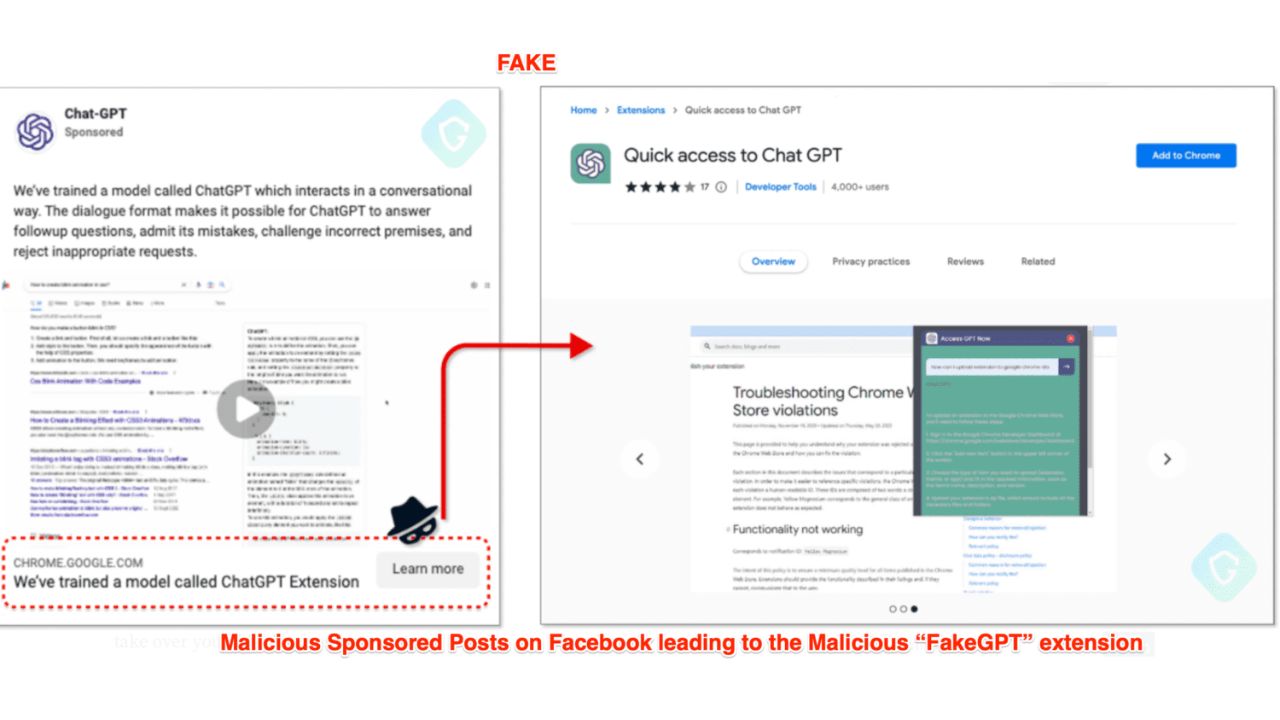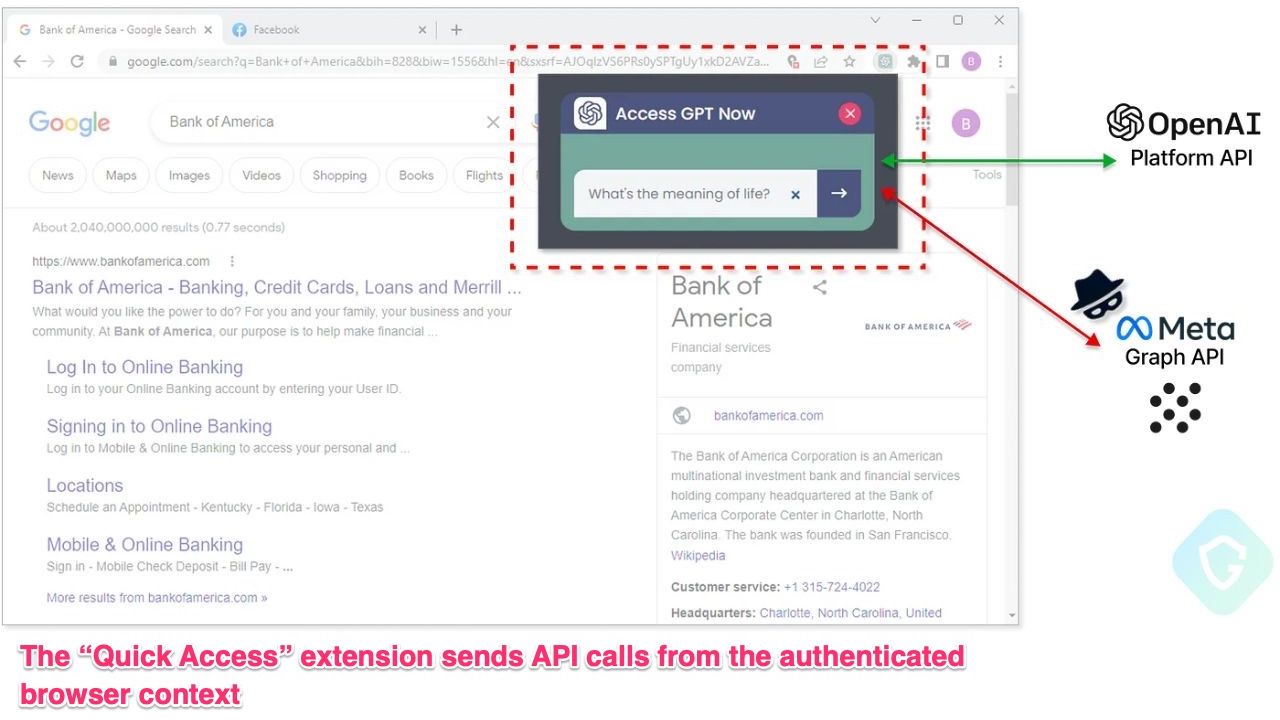ChatGPT has been all the rage ever since its release a few months ago. However, all that popularity comes with its consequences. Lately, the biggest downside is that scammers are taking every opportunity they can to fool vulnerable people online and get them to use phony ChatGPT plugins so that they can hack into their Facebook accounts. Here’s what we know.

Credit: Guardio Labs
How are hackers getting people’s Facebook logins?
According to a report released by Guardio Labs, hackers have created a Chrome-based browser plugin that claims to give quicker access to ChatGPT without having to go through the OpenAI website. The reason why this plugin is so convincing is that it does allow you to converse with ChatGPT. However, as you are doing this, the malware within the plugin is taking from your browser, stealing cookies of authorized, active sessions to any service you have, and employing tailored tactics to take over your Facebook account.
The hackers are using this plugin especially to target the Facebook profiles of high-end businesses, hoping to get as much information as they can. They do this by using the hijacked profiles to spread more malware, launch bot accounts, and post sponsored content using the account’s advertising credits.
However, don’t think you couldn’t be a target too. By hacking into your Facebook account, criminals could access personal information to impersonate or steal your identity. It could also result in financial loss if you have linked your credit card or other financial information to your Facebook account. The hacker could use this information to make unauthorized purchases or transactions. Even worse, the attacker could use your stolen Facebook login to send phishing emails or messages to your friends and family, convincing them to provide personal information or money.
MORE: HOW HACKERS ARE USING CHATGPT TO CREATE MALWARE TO TARGET YOU

Credit: Guardio Labs
What can I do to prevent this plugin from getting to my Facebook account?
The main thing to remember is that the real ChatGPT tool can only be accessed by going to the OpenAI website. If you happen to see any ads, Facebook pages, plugins, or other websites claiming to be a faster and more efficient way to let you use the AI tool, it is likely a scam.

Credit: Guardio Labs
Have good antivirus software on all your devices
And the best way for you to avoid any kind of malware from invading your device is to have antivirus protection installed on all your devices. This can also alert you of any phishing emails or ransomware scams. My top pick is TotalAV, and you can get a limited-time deal for CyberGuy readers: $19 your first year (80% off) for the TotalAV Antivirus Pro package. Read more of my Best Antivirus picks here.
Have you seen this fake ChatGPT plugin? Let us know if you’ve seen other suspicious activity.
Related:
🛍️ SHOPPING GUIDES:
KIDS | MEN | WOMEN | TEENS | PETS |
FOR THOSE WHO LOVE:
COOKING | COFFEE | TOOLS | TRAVEL | WINE |
DEVICES:
LAPTOPS | TABLETS | PRINTERS | DESKTOPS | MONITORS | EARBUDS | HEADPHONES | KINDLES | SOUNDBARS | KINDLES | DRONES |
ACCESSORIES:
CAR | KITCHEN | LAPTOP | KEYBOARDS | PHONE | TRAVEL | KEEP IT COZY |
PERSONAL GIFTS:
PHOTOBOOKS | DIGITAL PHOTO FRAMES |
SECURITY
ANTIVIRUS | VPN | SECURE EMAIL |
CAN'T GO WRONG WITH THESE:



